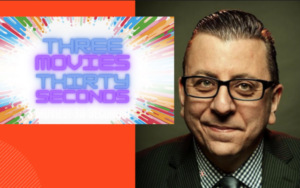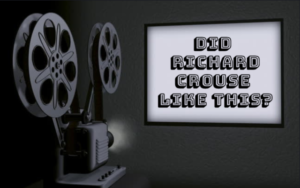Since 2002 Milla Jovovich has played a genetically altered zombie fighter with telekinetic powers in six Resident Evil films.
Like the undead fleshbags who populate these based-on-a-videogame movies, you can’t seem to kill this franchise, although the title of this weekend’s Resident Evil: The Final Chapter seems to indicate the end is near.
But just because the Resident Evil movies aren’t Shakespeare doesn’t mean we can’t learn something from them. Here’s what I took away from Jovovich and Company in the last 13 years:
1. The undead have really, really bad aim.
2. No matter what stunt she has just performed, whether it’s plummeting 19 stories down an abandoned mine shaft, or battling legions of bad guys, Mila’s hair will, at most, only look slightly tousled, as if Vidal Sassoon had just finished running his magic fingers through her locks.
3. The amount of rainfall in the future makes Vancouver look arid.
4. To act in one of these movies you must perfect one of two facial expressions: a. steely determination, or b. uncontrolled rage (which can be alternated with a sadistic smile if necessary).
5. Characters will say, “What the hell is going on here?” when it is quite clear what the heck is going on.
6. Most of the people to survive the deadly plague that destroyed most of humanity look like Abercrombie & Fitch pinups.
7. Why take the stairs when you can drive a Rolls Royce down an escalator?
So there you have it — lessons learned.
Despite legendary director Jean-Luc Godard’s claim that, “All you need for a movie is a gun and a girl,” both of which are amply on display in the Resident Evil movies, they still feel more like a videogame projected on a big screen than a movie.
But who cares what I or other film critics think? These movies have been phenomenally successful and for over a decade have proven to be critic-proof. Roger Ebert placed Resident Evil on his most hated films list in 2005 and called its sequel, “an utterly meaningless waste of time,” adding, “Parents: If you encounter teenagers who say they liked this movie, do not let them date your children.”
Leonard Maltin added to the pile on calling Resident Evil: Apocalypse “tiresome” while Dark Horizons said the third movie, Afterlife was, “perhaps the first 3D motion picture to simulate the experience of watching paint dry,” and yet the splatter flick went on to gross $300 million worldwide.
Critics aside, others in the film biz love the movies. Avatar director James Cameron called Resident Evil his biggest guilty pleasure and the Ontario Media Development Corporation acknowledged the Toronto-shot Afterlife as the most successful production in Canadian feature film history.
Bottom line is that in total, the series has grossed almost $1 billion — a feat recognized by the Guinness World Records Gamers’ Edition who called the Resident Evil films “the most successful movie series to be based on a video game,” awarding them with the record for Most Live-Action Film Adaptations of a Video Game.
 Richard speaks to “CTV News at 11:30” anchor Andria Case about the best movies and television to watch this weekend. This week we have a look Rebel Wilson in the Netflix comedy “Senior Year,” the Stephen King “Firestarter” reboot, the Ron Perlman neo-western “The Last Victim” and the Crave thriller “See For Me.”
Richard speaks to “CTV News at 11:30” anchor Andria Case about the best movies and television to watch this weekend. This week we have a look Rebel Wilson in the Netflix comedy “Senior Year,” the Stephen King “Firestarter” reboot, the Ron Perlman neo-western “The Last Victim” and the Crave thriller “See For Me.”







